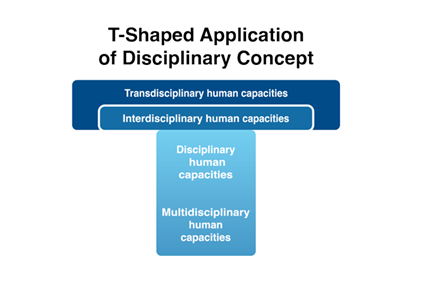


Emergency management is not recognised as a profession in Australia – Centre Associate Student Dr Russell Dippy is changing that with his recently completed research doctorate.
With the worsening natural hazard risk in Australia, understanding and managing disasters is essential. Emergency managers play a key role in coordinating responses to such events, but the term ‘emergency manager’ lacks a clear definition.
Russell says that his goal is to support the professionalisation of emergency management to provide it with greater integrity, competence and credibility. So, after working in emergency management for more than 45 years, in voluntary and paid roles, he undertook a Professional Doctorate.
Russell examined 20 years' of significant Australian emergency incidents that underwent judicial inquiries to identify the essential skills needed for emergency managers. He used a Gadamerian philosophical hermeneutic approach, a theory that understanding is a practical process, to reflect on his role as both a practitioner and researcher during the study.
“I have now seen how combining the experience that I have gained from working and volunteering in emergency management with a structured doctoral program has opened my eyes further to the changes that I can lead as we strive to provide improved emergency management services to our communities,” Russell said.
Australia needs to recognise emergency management as a profession and emergency managers as professionals to create consistency in response through standardised skill and knowledge, improved decision making and better outcomes for communities. Russell says that to make this happen, we must take steps to professionalise the field including clearly defining emergency management roles and developing and adopting certification and accreditation to recognise the qualifications and competencies of emergency managers,
“This shift will elevate emergency management from a job to a respected profession,” he said. “Professionalisation will allow us to use the skills identified in this research to improve how we handle emergencies in the future.”
A literature review revealed important human capacities, or qualities, needed for emergency management such as curiosity, compassion and teamwork.
The research findings highlight that both vocational and tertiary education contributes to professional development in this field. Certification processes that recognise this knowledge also play a crucial role. There is an opportunity for Australian-based certification models to be used in the professionalisation journey of emergency management.
Russell’s research contributes to the field in three ways:
The proposed definition for the emergency manager is a person who undertakes a managerial function, working within or across government, private or community sectors, to holistically plan, prevent, prepare for, respond to and/or recover from an emergency or potential emergency event.

Russell’s research suggests using the Emergency Management T-Shaped Transdisciplinary Model, along with certification and education, to support the professionalisation of Australian emergency managers.
These contributions support the professionalisation of emergency management and pave the way for future research.